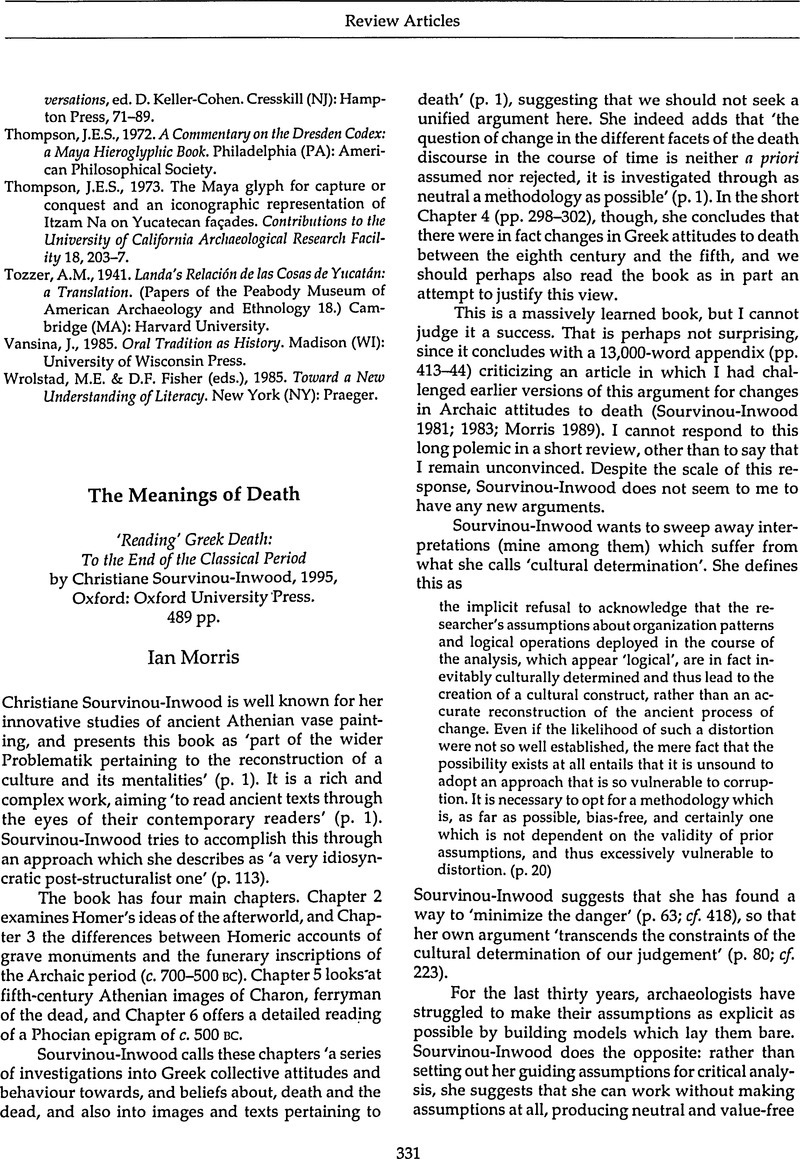No CrossRef data available.
Article contents
The Meanings of Death
Published online by Cambridge University Press: 14 October 2009
Abstract
An abstract is not available for this content so a preview has been provided. Please use the Get access link above for information on how to access this content.

- Type
- Review Articles
- Information
- Copyright
- Copyright © The McDonald Institute for Archaeological Research 1995
References
Chartier, R., 1988. Cultural History: Between Practices and Representations. Trans. Cochrane, L.G.. Ithaca (NY): Cornell University Press.Google Scholar
Chartier, R., 1993. The Cultural Origins of the French Revolution. Trans. Cochrane, L.G.. Durham (NC): Duke University Press.Google Scholar
Martin, R.P., 1989. The Language of Heroes: Speech and Performance in the Iliad. Ithaca (NY): Cornell University Press.Google Scholar
Morris, I., 1989. Attitudes toward death in Archaic Greece. Classical Antiquity 8, 296–320.CrossRefGoogle ScholarPubMed
Nagy, G., 1979. The Best of the Achaeans: Concepts of the Hero in Archaic Greek Poetry. Baltimore (MD): John Hopkins University Press.Google Scholar
Slatkin, L., 1991. The Power of Thetis: Allusion and Interpretation in the Iliad. Berkeley (CA): University of California Press.Google Scholar
Sourvinou-Inwood, C., 1981. To die and enter the House of Hades: Homer, before and after, in Mirrors of Mortality, ed. Whaley, J.. London: Europa, 15–39.Google Scholar
Sourvinou-Inwood, C., 1983. A trauma in flux: death in the 8th century and after, in The Greek Renaissance of the Eighth Century BC, ed. Hägg, R.. Stockholm: Skrifter utgivna i svenska institutet i Athen, 33–48.Google Scholar


